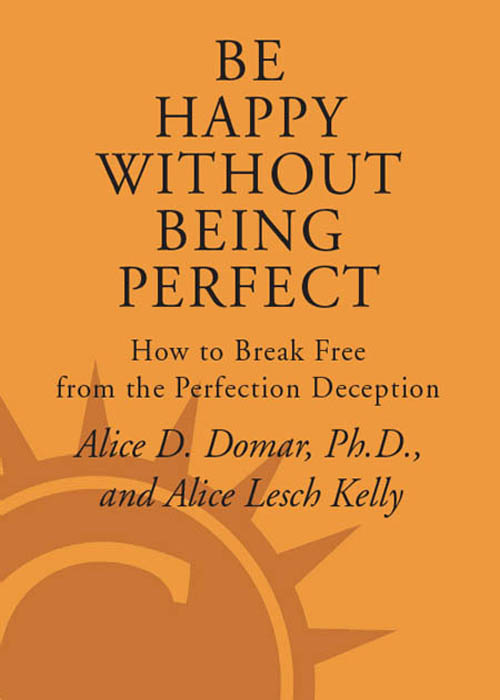
Be Happy Without Being Perfect
How to Break Free from the Perfection Deception
- اطلاعات
- نقد و بررسی
- دیدگاه کاربران
نقد و بررسی

December 24, 2007
According to psychologist and Harvard Medical School assistant professor Domar (Self-Nurture
), “everything is never
perfect, and if you expect it to be, true happiness and contentment will always be out of reach.” To teach women to create reasonable expectations for relationships, careers and their bodies, the authors offer quizzes to determine how much perfectionism is influencing readers' lives and interview women struggling with perfectionism. In a three-part process, readers are encouraged to identify, challenge and restructure detrimental thoughts. For example, a woman who decides her neighbor is a more creative parent than she is because the neighbor sews exquisite Halloween costumes should tell herself, “We all have strengths and weaknesses,” and “I do some things better than she does.” The authors also offer step-by-step techniques to tame the perfectionist beast, such as meditation, yoga, mini relaxations and journaling, and advise readers on setting realistic exercise and eating goals. Although much of the advice, written with journalist Kelly, is obvious and easier said than done, it's also sound and detailed and provides a good starting point for perfectionist readers.

February 1, 2008
In her work as a gynecologist, Domar ("Conquering Infertility: Dr. Alice Domar's Mind/Body Guide to Enhancing Fertility and Coping with Infertility") found that many of her clients felt overwhelmed, depressed, and out of control in trying to live up to the media's depictions of women as perfect mothers, spouses, hostesses, and decision makers. Together with fitness writer Kelly, Domar here shows that perfectionism has been an issue for American women since colonial times, long before Martha Stewart made the scene. In her survey of more than 50 women whose observations and advice appear throughout the text, Domar identifies six areas of perfectionism: health and personal appearance, housekeeping, work, relationships, parenting, and decision making. In each of these areas, she demonstrates how the technique of cognitive restructuring, or "retraining your brain," can be used to reframe common distortions in thinking and result in realistic expectations and happier lives. Many women will recognize themselves in the descriptions given by Domar and her respondents, and even nonperfectionists can benefit from her advice on decision making and coping with everyday stressors (e.g., journaling, meditation). Recommended for self-help and women's health collections in public libraries. [See Prepub Alert, "LJ" 11/15/07.]Lucille M. Boone, San Jose P.L., CA
Copyright 2008 Library Journal, LLC Used with permission.




دیدگاه کاربران